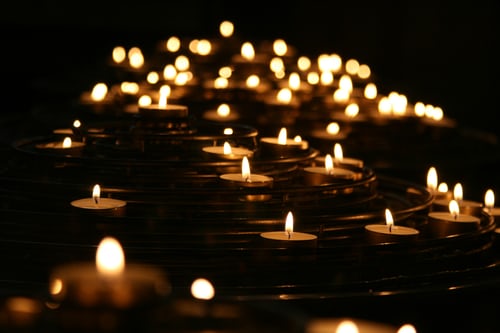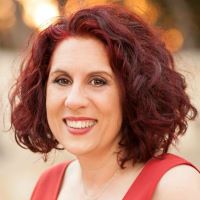Understanding Privilege
Am I Priveleged? The first time I used the term White Privilege I managed to deeply offend a close friend. I was surprised by his response, and I guess for that reason it’s not a term I like to use. However the fact remains that I am privileged and while there is privilege within every culture, I do believe that being white hasn’t hurt.
I am privileged in many ways. I live in a comfortable home, I had access to a tertiary education, I’ve always had a job. I have the freedom to practice my faith, to make my own important life decisions and to choose my friends and life partner.
I had the privilege of being raised by my parents, in a loving home. I was surrounded by loving extended family who shared stories of their childhood, stories from their culture. I ate the food, listened to the music, observed traditions and spoke the language of the culture of my parents. And when I grew and was able to find a way to blend the old culture of Italy with the new culture of Australia, that important part of my family history became an integral part of who I am, of my identity. And I feel a sense of pride in that identity.
Not so for my dear friend Deborah. She remembers being taken from her mother at the tender age of 2 and placed in foster care, not for any reason other than she is Aboriginal. She was raised in a white Australian home, no knowledge of her culture or background and to make matters worse she was sexually abused by her foster father. As an adult she searched for her mother, only to find that she had recently passed away.
I had the privilege of raising my own children, according to the beliefs and values that I and my husband hold. And I enjoyed the privilege of creating memories and traditions in our own family unit, along with the privilege of passing on some of the stories and traditions from my Italian culture. Not so for Deborah’s mother, or the countless mothers and fathers whose babies were stolen from them, never to be seen again.
I have the privilege of being visible when I go shopping and of receiving the customer service that I would expect. Not so for my colleague Frank. I’ll never forget the day I stood with him at the cafe counter, waiting to buy lunch. As the attendant served people who arrived after us, I was about to step in but Frank held me back, urging me to wait and watch. He wanted me to witness first hand what he regularly experiences. And what I witnessed was deplorable! When the last person from the throng of customers had left, the shop assistant looked right through us, turned and walked away.
I have the privilege of driving my nice car without being stopped by the police. Unlike my friend Rob who was regularly stopped and asked to produce proof of ownership for his Monaro. Because of course, an Aboriginal can’t own a nice car, it must be stolen.
And I have the privilege of being respected in my workplace when I’m out doing relief work. Unlike my dear friend Amelia who is African, has a University degree and years of experience in managerial roles, is currently working the odd temp job and is regularly mistaken for the tea lady. Because she’s black and has an accent.
All of the people above are real people, that I personally know. I could share many more stories of the experiences of colleagues, and friends and for each of their stories there are tens of thousands more. Worldwide.
These stories must continue to be told until enough people get the message. And part of their message is a reminder that Black lives do matter. Affirming this statement in no way says that other lives don’t matter, or that black lives are more important than others. It is simply a cry for the world to listen, and the words will continue to be spoken until the people who speak them feel listened to and affirmed. Until they can see in the actions of the world around them that their lives are equal in value to the lives of all people.
Using My Voice Against Racism
All things considered, I live a blessed and privileged life. I did nothing special to deserve the blessings I have received. So the way I see it, these blessings are a gift to be shared. Not to hold on to, but to pay it forward.
And just as I can share my possessions, my money and my time, I can and I will share my voice.
It is no longer enough to be ‘non-racist’, it is vital to be anti-racist. The truth of this pierced my heart when I first read it.
Yesterday second baby shared with us the story of her manager, who came to Australia 10 years ago from India, at the age of 17. Not a penny to his name and not able to understand a word of English, but he did have a huge amount of courage and determination. One of his first jobs was at a service station, where he was paid $6 per hour to pump petrol, well below the minimum wage. Hubby asked how the employer was able to get away with it. My Response? Racism.
This employer took advantage of someone who did not understand our language or his rights and entitlements under Australian law. Which is exactly what happened to my father when he first migrated to Australia, so I know the story well.
Most of us would not stand by and allow this kind of exploitation. Most of us would speak up. His manager may not have listened to the complaints of his employee, but if I complained on his behalf, the manager would most likely listen. Why? Because I’m privileged. I have an education, I speak the language and I would know where to go with a complaint to ensure the rights of this employee would be upheld. So basically I would be able to speak with some authority on behalf of another.
Most of us are not Racist, but if we stand by and watch while someone is being treated poorly because of their race or the colour of their skin, are we not just as guilty? It’s no longer enough to rest with pride in the knowledge that we had nothing to do with the original problem. It’s time for us to stand up. To speak out. To call it for what it is.
To be part of the solution.
Because we can and because, at the end of the day, this is not about Privilege at all. The true definition of Privilege is that it is an advantage, or immunity granted or available only to a particular person or group. What I’m talking about is not something that should be made available only to a few. I’m talking about basic human rights. The right for all of us to live with dignity, to have equity in opportunities and recognition, to make self determining choices, to feel safe and valued…
To Be.
Anything less makes us guilty of perpetuating the original crime against humanity.

Sticks and Stones: My own experience of racial slurs.
National Sorry Day: Why should we say sorry?


